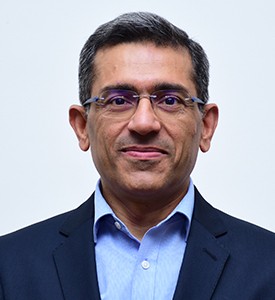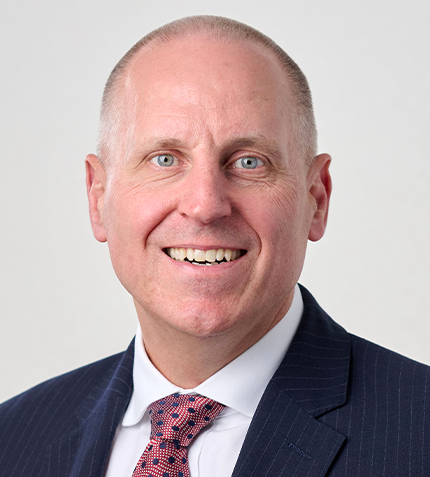
“As a business, we try to make up for the prolonged study cycle by being more effective and efficient in our services by deploying adequate clinical and bioanalytical resources for our sponsors, for example by operating a significant number of machines per bed ratio.”
Ajay Tandon
EXECUTIVE DIRECTOR, VEEDA CLINICAL RESEARCH PVT. LTD.
As one of the largest independent CROs in India, could you start with an overview of the company and your current service offering to customers in India and abroad?
Veeda Clinical Research has been in business for 15 years and has become one of the largest independent CROs. The status of our independence is a crucial element, because regulators require independent data, just as sponsors need to make sure there is no conflict of interests with their CROs. In terms of infrastructure, Veeda benefits from three clinical facilities, representing over 500 beds in total, and one of the largest bioanalytical labs in India, which enable us to extend our services to a global clientele.
As a young company, we have developed a full repertoire of competencies to meet all customer requirements. Veeda is known for its scientific capabilities to execute complete solutions for our customers, whether it is in the sphere of generics or more complex molecules. Over 90% of our submissions are to leading global regulatory authorities. We offer regular bioequivalence studies for generic drugs in healthy volunteers, pharmacokinetic and clinical endpoint studies for generic drugs in patient volunteers and bioanalytical work for NCE for innovators, and we are fast developing our capabilities in the large molecules and biosimilar space.
Considering the tremendous infrastructure needed to provide specialist services and clinical trials, how is Veeda adapting to regulatory frameworks across the world and how are these different to India, where its operations are based?
Quality in the CRO industry is all about compliance, which is an integral part of our work and role. We take pride in our exemplary track record of over 60 regulatory inspections by different leading agencies across the world, including the USFDA, MHRA, Anvisa, WHO, ANSM, AGES, MCC, NPRA and others besides DCGI in India. We constantly keep track of the regulatory guidance from these agencies to ensure compliance of our study protocols as well as our SOPs with the evolving regulatory expectations.
Regulations in India have gradually become more transparent and comprehensive, and while ensuring the rights and safety of patients and volunteers on one hand, these are also supportive of the clinical research industry in India. The new clinical trial rules released in March 2019 have helped compile and clarify the rules, which is very helpful for us as well as our sponsors who have come to expect the clarity they see in many other jurisdictions globally.
However, our clients do see a challenge in terms of the time taken to obtain regulatory approvals for a study and to initiate trials in India, which has been extended to six weeks in the recent guidelines, and this does mean our sponsors actively consider other jurisdictions for their studies. As a business, we try to make up for the prolonged study cycle by being more effective and efficient in our services by deploying adequate clinical and bioanalytical resources for our sponsors, for example by operating a significant number of machines per bed ratio.
Demand for outsourcing services has been on the rise globally. What makes India a preferred destination for outsourcing for the international pharmaceutical industry?
While the clinical services provided by Veeda represent a significant part of that sphere, there is a lot of outsourcing work being done in the discovery, pre-clinical and post-clinical stages as well. In the CRO space, some people attribute India’s competitiveness to its large availability of volunteers and low cost base, but this is an incomplete way of looking at it. The pharmaceutical companies in India are globally competitive and relevant, which has created a core ecosystem for related industries, including CRO services, to grow. Secondly, India’s pharmaceutical ecosystem benefits from a strong availability of technically qualified talent pool that is well trained and English speaking, yet comparatively lower cost.
2018 saw the highest number of approvals in biosimilars by the USFDA. What is your expectation for how this market may develop in the future?
If we consider the quantum of the generics opportunity related to the molecules going off-patent in the next five years, a third of this number will be in the biosimilars space, with another third for complex generics, and the rest will be for simple generics. These proportions come in sharp contrast to previous years, when over 70% of the generics opportunity was for simple generics. Staying in tandem with the industry patterns and clients expectations, we see clear potential in CRO services for the development of biosimilars and complex generics. The demand for biosimilar development work currently tends to come more from Indian clients, while the European and U.S. biologics and biosimilar companies are not yet looking towards India in the same way. However, I think that it is a matter of time until the Indian biologics and biosimilars ecosystem also become globally relevant and the related CROs establish credentials in this space as well.
While Veeda has strong capabilities in the small molecules space, including complex generics, biosimilars currently represent only a small part of Veeda’s business. However, it is one of the key areas for growth, and while Veeda has capabilities in glucose clamp studies and insulin bioassays, there is a much larger space in biosimilars where we would like to build our capabilities, both organically and inorganically.
What is Veeda’s strategy moving forward, and where do you identify most opportunities for growth?
Biosimilars, complex generics and patient-based clinical trials are the three core areas of growth where we are focused on strengthening our clinical and bioanalytical capabilities. We are also focus on deepening our presence in the European and U.S. markets where we already have strong relationships with leading pharmaceutical companies. Additionally, we are working actively to set up a base in China, which is the second largest pharmaceutical market globally and one in which our clients have increasing interest. Finally, we would like to complete our end-to-end service offering to our clients by acquiring pre-clinical services into our portfolio to support our clients’ development programs in biosimilars and complex generics, besides NCEs.










